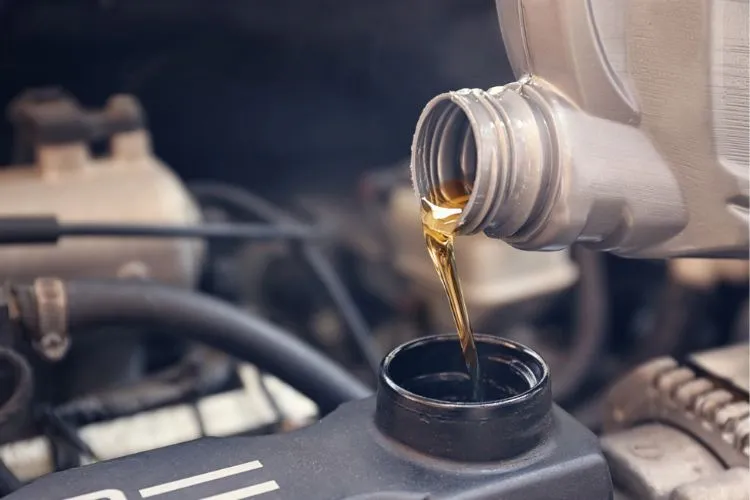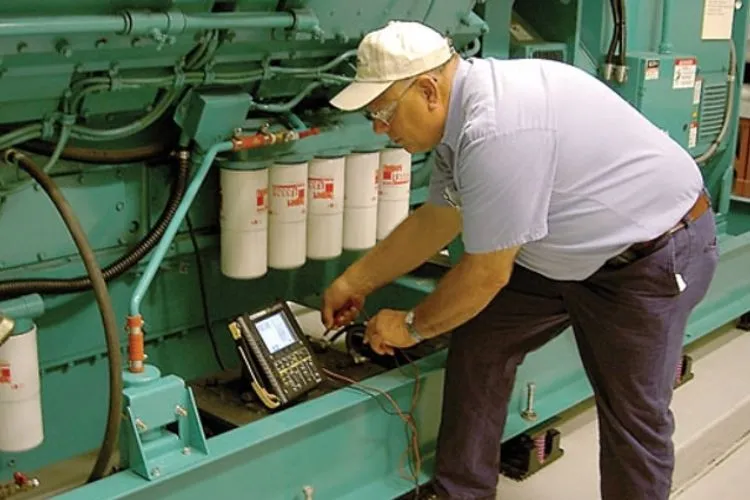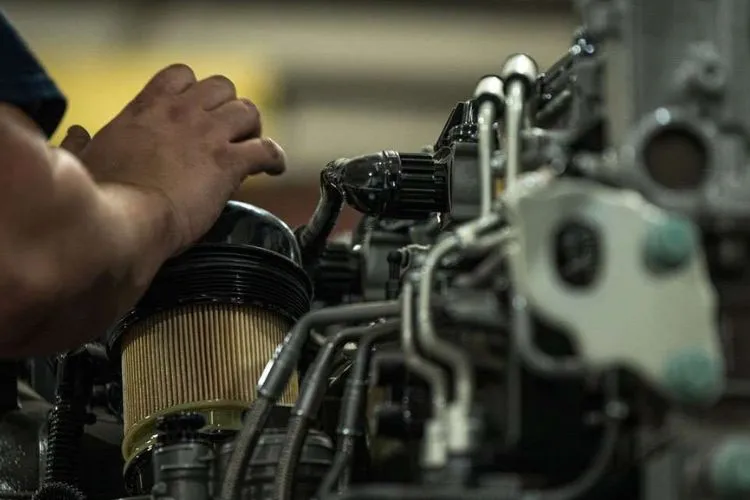Diesel generators have earned a respectable place with their strong performance, low operating cost, and overall reliability. However, one of the most critical questions buyers often find themselves asking refers to how long do diesel generators last.
This article aims to shed light on this topic, providing insights that will help you make informed decisions.

How Long Do Diesel Generators Last? Average Lifespan of Diesel Generators
Estimating an average lifespan for diesel generators can be tricky given the range of factors that can influence it. However, many manufacturers and industry experts suggest an average lifespan of between 20,000 to 30,000 running hours.
But this lifespan isn’t guaranteed—it’s subject to the severity of the conditions your generator operates under and how diligently it’s been maintained. Hence, the actual lifespan may vary significantly. Always bear in mind that these are rough averages, serving as a guideline rather than a strict rule.
Factors Influencing The Lifespan of Diesel Generators
Diesel generators aren’t a one-size-fits-all piece of equipment, and their performance can greatly vary based on several key factors.
Usage patterns can significantly impact the durability of your generator. A diesel generator running all day, every day, will have a significantly shorter lifespan as compared to one that is used occasionally, under controlled settings.
Consistent, high load operation will invariably decrease its lifespan more rapidly than usual.
Next in line is the maintenance routine—a well-maintained generator lasts longer. Regular checkups can spot issues before they turn into severe problems, ensuring optimal running conditions and prolonging your generator’s life.
Conversely, failing to maintain your generator can lead to a buildup of problems, which can compromise its lifespan drastically.
Environmental factors are yet another element to consider. Generators exposed to harsh weather conditions will suffer greater wear and tear compared to those housed in a controlled environment.
Extremes of temperature and moisture can accelerate rusting and corrosion, significantly shortening the lifespan of a generator.
How to Prolong the Life of Your Diesel Generator
With proper care and attention, the lifespan of a diesel generator can be maximized. Regular maintenance is crucial–routine checkups can provide important diagnoses, catching minor issues before they escalate.
The right usage pattern also contributes to longevity. Refrain from overloading the generator beyond its maximum capabilities.
Consistently operating in high-load conditions can eventually weaken its performance.

The quality of fuel used matters, too. High-quality diesel free of impurities helps ensure your generator performs optimally, reducing the risk of inefficiency or damage.
Lastly, the generator’s location plays an important role in its longevity. Housing the generator in a dry, temperate environment is practical, as it can protect it from excessive moisture and extreme temperature fluctuations.
Signs That Your Diesel Generator Needs Servicing or Replacement
Being aware of the signs that your generator needs servicing or replacing can save you from unwanted power disruptions.
One of the first warning signs is a change in how the generator sounds. Unexpected noises or vibrations during operation could indicate an internal malfunction. Similarly, if the generator has trouble starting or operates erratically, it’s recommended to have it professionally serviced.
Decreased fuel efficiency is another sign of concern. If your generator starts consuming more fuel than usual without any change in load, it could be due for servicing or replacement.
When considering the lifecycle of a diesel generator, it’s critical to weigh both the operational and financial implications of maintenance against the cost of replacement.
A well-maintained diesel generator can offer significant savings over time, not only in terms of extended operational life but also in maintaining efficiency, thus reducing fuel consumption and operational costs.
However, as generators age, the cost of maintenance can rise, and efficiency can decrease, leading to a pivotal decision point: to continue maintaining the existing unit or to invest in a new generator.
Financial Considerations of Diesel Generator Replacement
The initial cost of purchasing a new diesel generator is often the most significant financial consideration. Prices can vary widely based on the power output, brand, technology, and features of the generator. This investment goes beyond the sticker price, including installation, setup costs, and potentially even modifying existing infrastructure to accommodate the new unit.
On the flip side, the costs of maintaining an older generator can accumulate over time. Regular maintenance, such as replacing filters, oil, and parts subject to wear and tear, is predictable and generally manageable.
However, as a generator ages, it may require more extensive repairs, and finding replacement parts for older models can become challenging and expensive. Moreover, older generators may operate less efficiently, consuming more fuel and thus increasing operating costs.
Comparing Costs
Comparing the costs of regular maintenance with full replacement requires a strategic long-term view. Regular maintenance is essential to extend the lifespan of a diesel generator and can be seen as a series of smaller, manageable expenses spread over time.

In contrast, replacing a generator is a significant one-time expense but offers the advantage of newer, more efficient technology that could reduce operating costs and provide reliable power for years to come.
Ultimately, the decision to replace a diesel generator should factor in not just the current state of the equipment but also future needs. A new generator may offer advanced features such as improved fuel efficiency, lower emissions, and enhanced monitoring capabilities, which can contribute to operational savings over time.
Carefully assessing both the immediate and long-term cost implications of maintaining an existing generator versus investing in a new unit will enable informed, strategic decision-making that aligns with financial and operational goals.
You may also find useful: What is a Tri-Fuel Generator? | How to Drain Old Gas from a Generator?
Frequently Asked Questions (fAQs)
How many running hours do diesel generators generally last?
As previously mentioned, the average lifespan is typically between 20,000 to 30,000 running hours.
How often should a diesel generator be serviced?
Ideally, generators should be serviced every six months, or after every 500 hours of operation.
What is the longevity of diesel fuel in a generator tank?
High-quality diesel, stored properly, can last between 12 to 18 months before quality starts deteriorating.
Conclusion:
Understanding the lifespan of your diesel generator is critical to ensuring its optimal functioning and maximizing its use. By paying heed to factors that influence its longevity–usage, maintenance, environment–and recognizing signs of needed repair or replacement, you can enhance your diesel generator’s lifespan.
The knowledge provides not only better operational efficiency but also economic value over time. After all, a well-maintained diesel generator is indeed a long-term investment in steady, reliable energy.
Remember, the key to long-lasting equipment is appropriate usage and regular servicing. These two elements hand-in-hand can extend the longevity of your diesel generator significantly.
